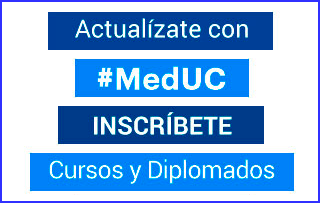Comunicarse efectivamente en Medicina. ¿Cómo adquirir habilidades comunicacionales durante la carrera de Medicina?
DOI:
https://doi.org/10.11565/arsmed.v36i2.152Palabras clave:
docencia, evaluación docenteResumen
Las habilidades comunicacionales efectivas forman parte de la competencia clínica de un buen médico, por lo que han sido incluidas en los programas de las escuelas de medicina de la mayoría de las universidades, tanto a nivel de docentes como de alumnos. El aprendizaje de las habilidades comunicacionales se optimiza cuando se enseñan de manera experiencial, observando a los estudiantes mientras interactúan con los pacientes, para luego entregarles un feedback constructivo. Estas habilidades pueden ser objeto de medición si se utilizan instrumentos que cuenten con las propiedades psicométricas adecuadas. Su evaluación, sin embargo, representa un desafío.Descargas
Citas
Marvel MK, Epstein RM, Flowers K, Beckman HB. Soliciting the patient’s agenda: have we improved? JAMA 1999; 20;281(3): 283-287.
Adamson TE, Bunch WH, Baldwin DC, Jr., Oppenberg A. The virtuous orthopaedist has fewer malpractice suits. Clin Orthop Relat Res 2000;(378): 104-109.
Levinson W, Gorawara-Bhat R, Lamb J. A study of patient clues and physician responses in primary care and surgical settings. JAMA 2000; 284(8): 1021-1027.
Tamblyn R, Abrahamowicz M, Dauphinee D, Wenghofer E, Jacques A, Klass D et al. Physician scores on a national clinical skills examination as predictors of complaints to medical regulatory authorities. JAMA 2007; 298(9): 993-1001.
Gittell JH, Fairfield KM, Bierbaum B, Head W, Jackson R, Kelly M et al. Impact of relational coordination on quality of care, postoperative pain and functioning, and length of stay: a nine-hospital study of surgical patients. Med Care 2000; 38(8): 807-819.
Stewart M, Brown JB, Donner A, McWhinney IR, Oates J, Weston WW et al. The impact of patient-centered care on outcomes. J Fam Pract 2000; 49(9): 796-804.
McLane CG, Zyzanski SJ, Flocke SA. Factors associated with medication noncompliance in rural elderly hypertensive patients. Am J Hypertens 1995; 8(2): 206-209.
Dowell J, Jones A, Snadden D. Exploring medication use to seek concordance with ‘non-adherent’ patients: a qualitative study. Br J Gen Pract 2002; 52(474): 24-32.
Joos SK, Hickam DH, Gordon GH, Baker LH. Effects of a physician communication intervention on patient care outcomes. J Gen Intern Med 1996; 11(3): 147-155.
Little P, Everitt H, Williamson I, Warner G, Moore M, Gould C et al. Preferences of patients for patient centred approach to consultation in primary care: observational study. BMJ 2001; 322(7284): 468-472.
Ramírez AJ, Graham J, Richards MA, Cull A, Gregory WM. Mental health of hospital consultants: the effects of stress and satisfaction at work. Lancet 1996; 347(9003): 724-728.
Roter DL, Hall JA, Kern DE, Barker LR, Cole KA, Roca RP. Improving physicians’ interviewing skills and reducing patients’ emotional distress. A randomized clinical trial. Arch Intern Med 1995; 155(17): 1877-1884.
Association of American Medical Colleges. Medical School Objectives Project: Report III -Contemporary Issues in Medicine: Communication in Medicine. 1999. Association of American Medical Colleges.
Kurtz S, Silverman J, Draper J. Teaching and Learning Communication skills. Radcliffe Medical Press; 2005.
Rider EA, Keefer CH. Communication skills competencies: definitions and a teaching toolbox. Med Educ 2006; 40(7): 624-629.
Trivino X, Vásquez A, Mena A, López A, Aldunate M, Varas M et al. [Application of Objective Structured Clinical Examination (OSCE) for pediatric internship assessment in two schools of medicine]. Rev Med Chil 2002; 130(7): 817-824.
Adamo G. Simulated and standardized patients in OSCEs: achievements and challenges 1992-2003. Med Teach 2003; 25(3): 262-270.
Makoul G. The SEGUE Framework for teaching and assessing communication skills. Patient Educ Couns 2001; 45(1): 23-34.
Kurtz SM, Silverman JD. The Calgary-Cambridge Referenced Observation Guides: an aid to defining the curriculum and organizing the teaching in communication training programmes. Med Educ 1996; 30(2): 83-89.
Silverman J, Kurtz SM, Draper J. Skills for Communicating with Patients. Second ed. Abingdon: Radcliffe Medical Press; 2005.
Whooley MA, Simon GE. Managing depression in medical outpatients. N Engl J Med 2000; 343(26): 1942-1950.
Butler C, Rollnick S, Stott N. The practitioner, the patient and resistance to change: recent ideas on compliance. CMAJ 1996; 154(9): 1357-1362.
Tuckett D, Boulton M, Olson C, Willams A. Meeting between experts: an approach to sharing ideas in the medical consultation. London: Tavistock; 1985.
Aspegren K. Best Evidence Medical Education Guide: Teaching and Learning Communication Skills in Medicine: A review with quality grading of Articles. Best Evidence Medical Education Guide N°. 1999
Association of American Medical Colleges. Medical School Objectives Project: Report III -Contemporary Issues in Medicine: Communication in Medicine. 1999. Association of American Medical Colleges.
Makoul G. Essential elements of communication in medical encounters: the Kalamazoo consensus statement. Acad Med 2001; 76(4): 390-393.
Mann KV. Thinking about learning: implications for principle-based professional education. J Contin Educ Health Prof 2002; 22(2): 69-76.
Ten CO, Snell L, Mann K, Vermunt J. Orienting teaching toward the learning process. Acad Med 2004; 79(3): 219-228.
Kurtz S., Silverman J., Draper J. Teaching and Learning Communication skills. Radcliffe Medical Press; 2005.
Rider E.A., Keefer C.H. Communication skills competencies: definitions and a teaching toolbox. Med Educ 2006; 40(7): 624-629.
Schirmer J.M., Mauksch L., Lang F., Marvel M.K., Zoppi K., Epstein R.M. et al. Assessing communication competence: a review of current tools. Fam Med 2005.
Epstein R.M. Assessment in medical education. N Engl J Med 2007; 356(4): 387-396.
Duffy F.D., Gordon G.H., Whelan G., Cole-Kelly K., Frankel R., Buffone N. et al. Assessing competence in communication and interpersonal skills: the Kalamazoo II report. Acad Med 2004; 79(6): 495-507.
Descargas
Publicado
Cómo citar
Número
Sección
Categorías
Licencia
Derechos de autor 2007 ARS MEDICA Revista de Ciencias Médicas

Esta obra está bajo una licencia internacional Creative Commons Atribución-CompartirIgual 4.0.
A partir del 1 de octubre 2023, los autores/as conservan sus derechos de autor y garantizan a la revista el derecho de primera publicación de su obra, la que estará simultáneamente sujeta a la Licencia CC BY-SA 4.0 (Ver declaración de Acceso Abierto).








